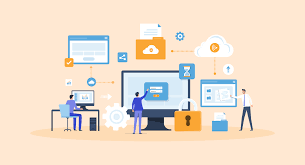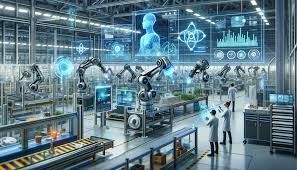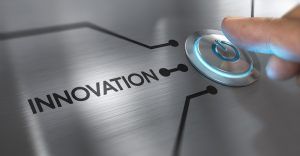Future-Proofing Your Business: Why Digital Twins Are Essential for Modern ERP Implementations
In today's fast-paced business environment, making informed decisions is crucial for staying competitive. Traditional decision-making often relies on intuition and experience, which, while valuable, can sometimes lead to suboptimal outcomes. Enter digital twins—virtual replicas of physical assets, processes, or systems that enable businesses to transform their decision-making processes through data-driven insights.

Challenges of Future-Proofing ERP Systems
Future-proofing an ERP system means ensuring that it remains relevant and effective in the face of new technological developments and market dynamics. Some of the key challenges include:
- Rapid Technological Advancements: New technologies emerge frequently, making it difficult for static ERP systems to stay current.
- Changing Business Needs: Companies need their ERP systems to adapt quickly to new business models, customer demands, and operational processes.
- Integration with New Technologies: Incorporating emerging technologies such as IoT, AI, and machine learning into existing ERP systems can be complex and costly.
The Role of Digital Twins in Modern ERP Implementations
Digital twins provide a flexible and adaptive platform that can seamlessly integrate with ERP systems, addressing the above challenges and ensuring that businesses are well-prepared for the future. Here’s how:
Scalability and Adaptability
Digital twins enable ERP systems to scale effortlessly with business growth and evolving operations. They create a virtual replica of physical assets, processes, and systems, allowing businesses to:
- Accommodate Future Growth: As your business expands, digital twins can easily incorporate new processes, assets, and data streams, ensuring that your ERP system scales with your needs.
- Adapt to Operational Changes: Whether it's a shift in production methods or a new supply chain strategy, digital twins can quickly adjust to new operational dynamics without disrupting the entire ERP infrastructure.
Improved Data Infrastructure
A digital twin-centric ERP implementation establishes a robust data foundation that enhances real-time decision-making capabilities:
- Centralized Data Management: Digital twins aggregate data from various sources into a unified platform, providing a comprehensive view of business operations.
- Real-Time Insights: By continuously monitoring and analyzing data, digital twins enable real-time insights and predictive analytics, helping businesses make informed decisions promptly.
Enhanced Agility
In today’s fast-paced market, agility is key to maintaining a competitive edge. Digital twins empower ERP systems to respond swiftly to changes and opportunities:
- Quick Market Response: With real-time data and predictive analytics, businesses can rapidly adapt to market trends, customer demands, and competitive pressures.
- Seamless Integration of Emerging Technologies: Digital twins facilitate the integration of cutting-edge technologies such as AI, machine learning, and IoT, ensuring that your ERP system stays at the forefront of innovation.
Nimbus XP: Your Partner in Digital Twin-Driven ERP Solutions
At Nimbus XP, we specialize in integrating digital twins into modern ERP solutions, helping businesses future-proof their operations. Our expertise ensures that your ERP system not only meets today’s demands but is also prepared for tomorrow’s challenges. By leveraging digital twins, we provide scalable, adaptable, and data-driven ERP implementations that enhance your business’s agility and competitive edge.
Conclusion
Future-proofing your business is essential in an era of rapid technological advancement and changing market dynamics. Digital twins offer a powerful solution for modern ERP implementations, providing scalability, improved data infrastructure, and enhanced agility. Trust Nimbus XP to guide you through this transformative journey, ensuring that your ERP system is equipped to handle the future with confidence.









